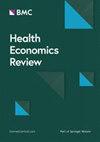Examining confidential wholesale margin estimates in European countries for the price negotiation of patented drugs in Germany: a statistical model
IF 2.7
3区 经济学
Q1 ECONOMICS
引用次数: 0
Abstract
Based on the legal framework laid down in section 130b (9) of Book V of the German Social Code, various criteria are relevant for the negotiated price for new patented drugs in Germany. European reference prices (ERPs) are one criterion. The ERP is based on the ex-factory prices (EFPs) of the countries included in the European country basket. However, in some of these countries, the EFP is not published due to confidential wholesale margins. Wholesale margins must therefore be estimated and deducted from purchase prices. In this context literature-based estimates to date do not assume regressive margins with higher pharmaceutical prices. This assumption is questionable and can lead to systematically underestimated country prices, especially for high-priced drugs. Percentage wholesale margins in the majority of European countries develop to a comparable extent regressively with increasing prices. It should therefore be examined (1) whether statistical models can predict the margins of individual countries, in principle and especially for countries where margins are unknown and regressive trends are likely, and (2) to what extent the estimation of margins improves when regressive statistical models are used to estimate margins instead of cross-price averages published in the literature. Qualitative preliminary research explores the basic wholesale pricing mechanisms in countries with confidential wholesale margins. Wholesale margins for reimbursable drugs were then modeled for regulated European countries. Estimation quality and impact of the model was compared to estimations based on average margins. In both regulated countries and in countries with confidential wholesale margins, percentage margins of wholesalers develop regressively as drug prices rise. Regressive courses of margins can be resiliently modeled for the regulated countries using a power distribution with significantly lower mean squared errors in a linear mixed model in comparison to literature-based estimations with country-specific cross-price averages. If there is reason to believe that margins are regressive, confidential wholesale margins are expected to be better estimated by the power function based on margins of regulated countries than by the published country-specific average margins, reducing significantly inaccurate effects on margin estimations of high-price drugs.考察欧洲国家对德国专利药品价格谈判的保密批发利润估算:统计模型
根据《德国社会法典》第五卷第 130b (9)条规定的法律框架,德国专利新药的谈判价格有多种相关标准。欧洲参考价格(ERP)是其中一项标准。欧洲参考价格是以欧洲一揽子国家的出厂价格为基础的。然而,由于批发利润保密,其中一些国家的 EFP 并未公布。因此,必须估算批发利润并从采购价格中扣除。在这种情况下,迄今为止基于文献的估算并未假设药品价格越高,利润率越低。这一假设值得商榷,可能导致系统性地低估国家价格,尤其是高价药品的价格。在大多数欧洲国家,批发利润率的百分比随着价格上涨而递减。因此,应研究:(1) 统计模型是否能预测个别国家的利润率,原则上是这样,特别是对于利润率未知且可能出现倒退趋势的国家;(2) 当使用倒退统计模型而不是文献中公布的交叉价格平均值来估算利润率时,对利润率的估算会有多大改进。定性初步研究探讨了具有保密批发利润率的国家的基本批发定价机制。然后为受监管的欧洲国家建立了可报销药品的批发利润模型。该模型的估算质量和影响与基于平均利润率的估算进行了比较。在受管制的国家和批发利润保密的国家,批发商的利润百分比随着药品价格上涨而递减。与文献中使用特定国家交叉价格平均值进行的估算相比,在线性混合模型中使用幂分布对受管制国家的利润率递减过程进行了弹性建模,其均方误差显著降低。如果有理由相信利润率是递减的,那么基于受管制国家利润率的幂函数对机密批发利润率的估算将优于已公布的特定国家平均利润率,从而大大减少对高价药品利润率估算的不准确影响。
本文章由计算机程序翻译,如有差异,请以英文原文为准。
求助全文
约1分钟内获得全文
求助全文
来源期刊

Health Economics Review
Multiple-
CiteScore
3.90
自引率
4.20%
发文量
59
审稿时长
13 weeks
期刊介绍:
Health Economics Review is an international high-quality journal covering all fields of Health Economics. A broad range of theoretical contributions, empirical studies and analyses of health policy with a health economic focus will be considered for publication. Its scope includes macro- and microeconomics of health care financing, health insurance and reimbursement as well as health economic evaluation, health services research and health policy analysis. Further research topics are the individual and institutional aspects of health care management and the growing importance of health care in developing countries.
 求助内容:
求助内容: 应助结果提醒方式:
应助结果提醒方式:


